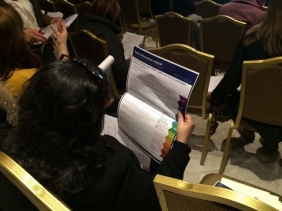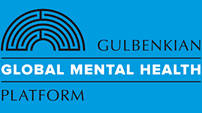Building general practitioner capacity in Tunisia by implementing the mhGAP

Tunisia currently faces significant mental health system challenges. While youth suicide and mental illness are on the rise, there is a dearth of mental health services across the country. It is estimated that more than one third of consultations with general practitioners (GPs) working in the Greater Tunis Area are mental health-related. Yet, the majority of GPs are not trained to effectively detect, treat and manage mental illness. Most people seeking mental health care, therefore, turn to the only standing and already overcrowded mental hospital in the country, Razi Hospital in Tunis, or to limited psychiatric units across the regional hospitals.
To address the high mental health treatment gap, the Tunisian Ministry of Health, in collaboration with the WHO Country Office for Tunisia, the WHO Regional Office for the Eastern Mediterranean, the School of Public Health at the University of Montreal, Canada, and the Montreal WHO-PAHO (Pan American Health Organization) Collaborating Centre for Research and Training in Mental Health, launched the implementation of the mhGAP programme in the Greater Tunis Area.
As a first activity, 45 general practitioners working in the Greater Tunis Area were trained in February-March 2016 on early recognition and management of mental disorders including depression, schizophrenia, problems related to alcohol and drug use, as well as self-harm/suicide. A second group of 47 GPs was trained in March-April 2016.
Since the trainings, participating GPs already feel more comfortable communicating with and treating people consulting for mental illness. Many participants like using the guide that accompanies the training in their daily practice because, they say, it is user-friendly and practical.
These positive changes have also been acknowledged by trainers. One trainer shared: “During the training, I noticed that the GPs were very motivated to learn about mental health and enthusiastic about participating in the training. I also acknowledged a shift in the way they view mental health. After the training, my colleagues began detecting mental health problems in the people affected by mental health conditions that they have been following for years.”
Evaluation of the impact of the training will be conducted using a randomized controlled trial design. It will target the change in the knowledge and attitudes of GPs about mental illness, and self-efficacy in detecting, treating and managing mental health problems at the community level.
Implementing the mhGAP in the Greater Tunis Area is a first attempt to bridge the treatment gap in Tunisia by integrating accessible and evidence-based care for mental disorders into primary health care. This integration can serve as a model for the mhGAP’s implementation in other low- and middle-income countries (LMICs), and especially in French-speaking countries.
